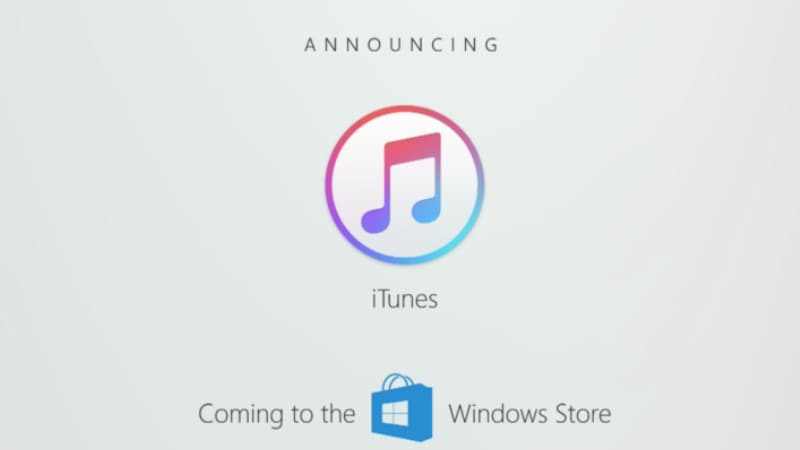
Microsoft’s Build conference is underway, and the company is announcing a bunch of interesting things. Microsoft highlighted all the big features that are arriving with the Windows 10 Creators Update in the fall. One fresh big announcement includes the addition of iTunes to the Windows Store. Furthermore, popular Linux distributions like Ubuntu, SUSE Linux, and Fedora are coming to the Store as well, and will be available to install and run in a virtualised environment complete with command line options.
There is no tangible timeline as to when some of these apps will arrive in the Windows Store, or how they will look like when they go live. The introduction of iTunes in Windows Store means that it should run on Windows 10 S as well, as will the other Linux distributions. There were no screenshots shared on how iTunes will be designed for Windows, but it will provide all the functionalities that the current Windows app provides. This includes access to Apple Music and iTunes Store.
With the advent of the new education-focused Windows 10 S, it is only natural that developers are flocking to the Windows Store to make them accessible there. How did Microsoft rope Apple in to do this? Your guess is as good as ours. We just hope that iTunes is more adaptive to Microsoft’s Fluent Design language, and not remain clunky like the current one we see on Windows. However, we doubt that. Thanks to Microsoft’s Project Centennial desktop app conversion tool, Apple can easily make its desktop app available on the Store, without much work.
The arrival of Linux distributions is possible because Microsoft decided to bring the Bash Shell to Windows, which resulted in the Windows Subsystem for Linux (WSL). VentureBeat explains that the WSL compatibility layer allowed Linux binary executable to run on Windows. Its partnership with Canonical allowed Ubuntu tools to run natively on top of WSL.

Ubuntu is already available on Windows Store, while SUSE Linux and Fedora will bring their distributions to the Windows Subsystem for Linux (WSL) in Windows 10. The two apps will come to the Windows Store apps eventually. Microsoft has also announced that Spotify will be available on Windows Store as well. Notably, Ubuntu is not showing up in the Windows Store for all users right now, but should be rolled out eventually.
For the latest tech news and reviews, follow Gadgets 360 on Twitter, Facebook, and subscribe to our YouTube channel.
